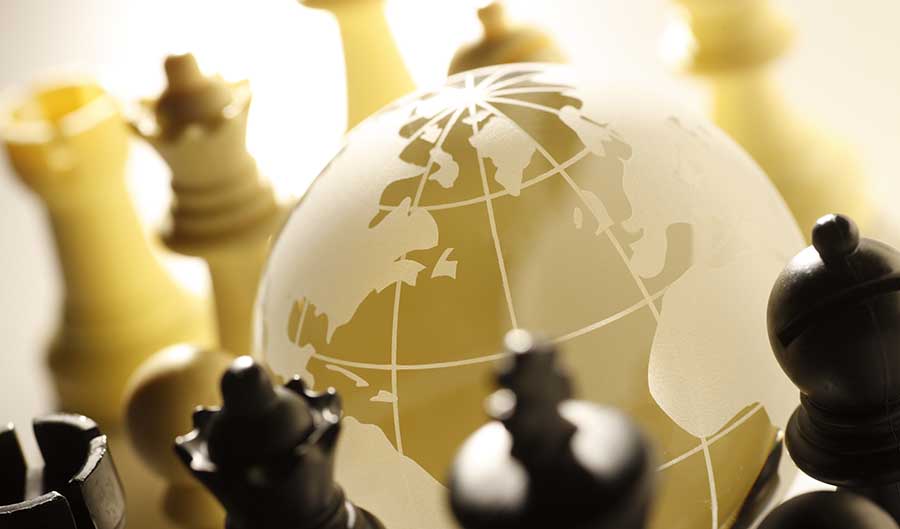Chinese leaders harbor suspicions that the United States is pursuing a policy to contain China’s growing power and influence. Those suspicions are warranted. U.S. actions contributing to those suspicions include direct measures, such as the freedom of navigation patrols in the South China Sea, and the deployment of the THAAD system in South Korea—both over Beijing’s vehement protests. Washington’s anti-China containment policy, however, includes more subtle and indirect measures. These policies include the lifting of long-standing arms embargo on Vietnam and the development of an increasingly cozy strategic relationship with Hanoi. Another item would be the return of U.S. military forces to the Philippines, along with Washington’s unsubtle backing of Manila’s legal case before the International Court of Arbitration regarding the South China Sea territorial dispute with China. Yet another policy would include the series of arms sales and signing of a military logistics agreement with India. Finally, there are the ongoing efforts to transform Washington’s alliances with Japan and South Korea from purely bilateral defense pacts into arrangements to handle unspecified “regional contingencies.”

Although the United States is the principal source of containment—or balancing actor —directed against China, it is not the only one. And Beijing needs to consider how its own conduct has caused some of its neighbors to adopt such measures even with little or no direct involvement from the United States.
The evidence of such independent initiatives, of which Japan is the epicenter, is substantial and growing. As early as 2013 and 2014, Tokyo was clearly
backing the Association of Southeast Asian Nations (ASEAN) in its South China Sea territorial disputes with China. Japan’s involvement in the South China Sea has since escalated on multiple fronts. Japanese ships will
now join U.S. naval vessels in conducting so-called freedom of navigation patrols in that body of water.
In addition to that step, Tokyo has agreed to provide patrol ships to
Vietnam, one of Beijing’s most intense rival claimants. In late September, Tokyo agreed to do the same for
Malaysia, another rival claimant. Japan also offered
maritime support, including used military hardware, to the Philippines, and Tokyo has developed a variety of security ties with
Indonesia. When it comes to the South China Sea, Japan’s attitude appears to be “anybody but China.”
Perhaps most disturbing to Beijing is that Tokyo’s ambitions do not seem confined within the South China Sea. Prime Minister Shinzo Abe’s government continues to negotiate a $1.65 billion deal to sell amphibious military aircrafts to
India and seek closer maritime security ties. Indo-Japanese security cooperation developed to the point that Columbian University Professor Rajan Menon, a respected expert on international affairs, published an article with the provocative title: “An India-Japan Alliance Brewing?” in the
pages of the National Interest.
India seems to display growing worries about China’s ambitions and intentions, thus forging new security links with the United States as well as Japan. Delhi also approved an $8 billion
warship project to counter China’s growing naval power. Other nations seem to regard this move favorably. Indeed,
Singapore explicitly urged India to play a bigger role in the South China Sea.
Perhaps more surprisingly, small East Asian nations that suffered at Japan’s hands during the first half of the twentieth century now seem receptive to Tokyo playing a much more active security role. The change in attitude suggests how much smaller nations are worried about Beijing’s power and inclinations. Even before the election of the more anti-China, pro-independence government of the Democratic Progressive Party’s Tsai Ing-wen, Taiwan sought to boost maritime cooperation with both the Philippines and Japan. Former Taiwanese President
Lee Teng-hui openly stated that Japan needed to play a bigger security role in East Asia—in part to offset what he saw as the decline of U.S. clout. Lame duck President
Ma Ying-jeou urged his countrymen to remember the good things that Japan did as well as the bad during the decades of colonial rule.
Tsai has already opened up an informal security dialogue between Taipei and Tokyo.
All of this activity is balancing behavior indicative of neighbors that are uneasy, at the very least, about Beijing’ conduct. Chinese officials may complain all they wish that the United States has sought to foment paranoia among East Asian countries and drive them into an alliance against China. There may be some truth to that argument. There is little doubt that U.S. leaders want to preserve America’s strategic primacy in the region, and they worry about China as a possible challenger. But Chinese policymakers need to ask themselves why so many diverse nations seem to be receptive to measures that translate into balancing behavior against China even when the United States is in the background. Perhaps some of Beijing’s own actions, including the overly broad territorial claims in the South China Sea and the extremely pronounced buildup of military capabilities over the past decade, might have something to do with it. In any case, the neighbors are nervous and that is not boding terribly well for Chinese interests.



